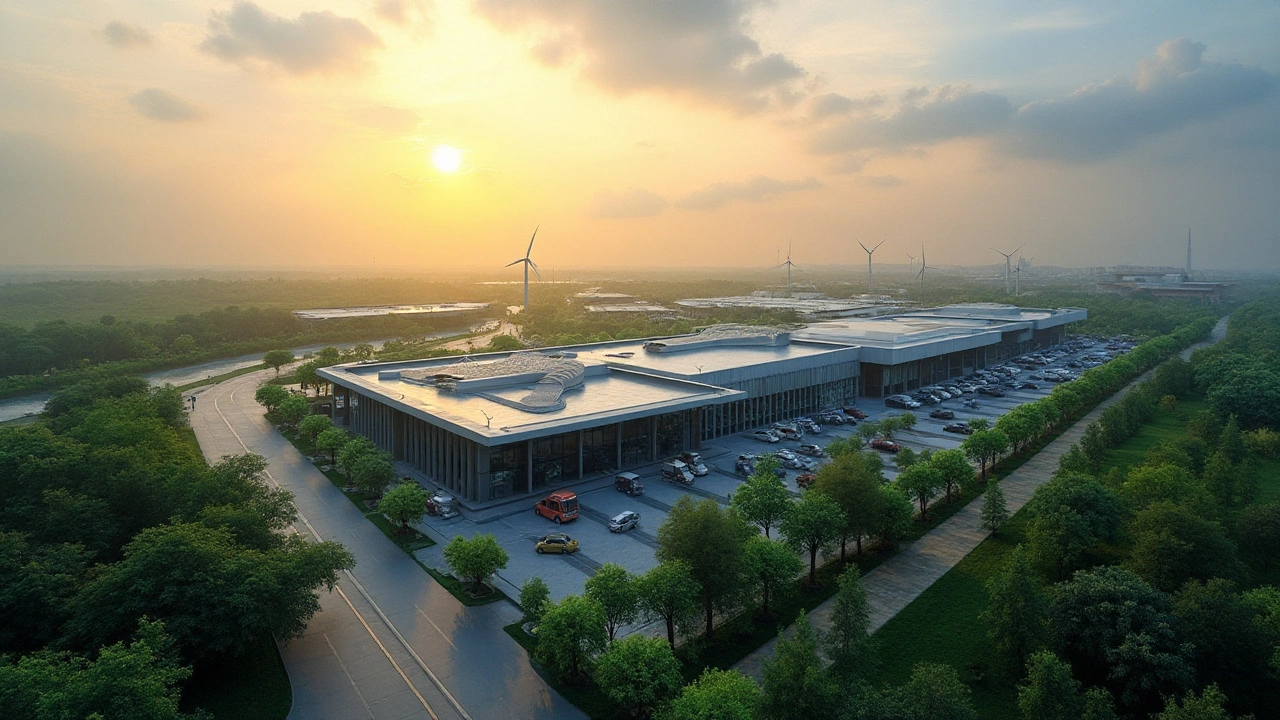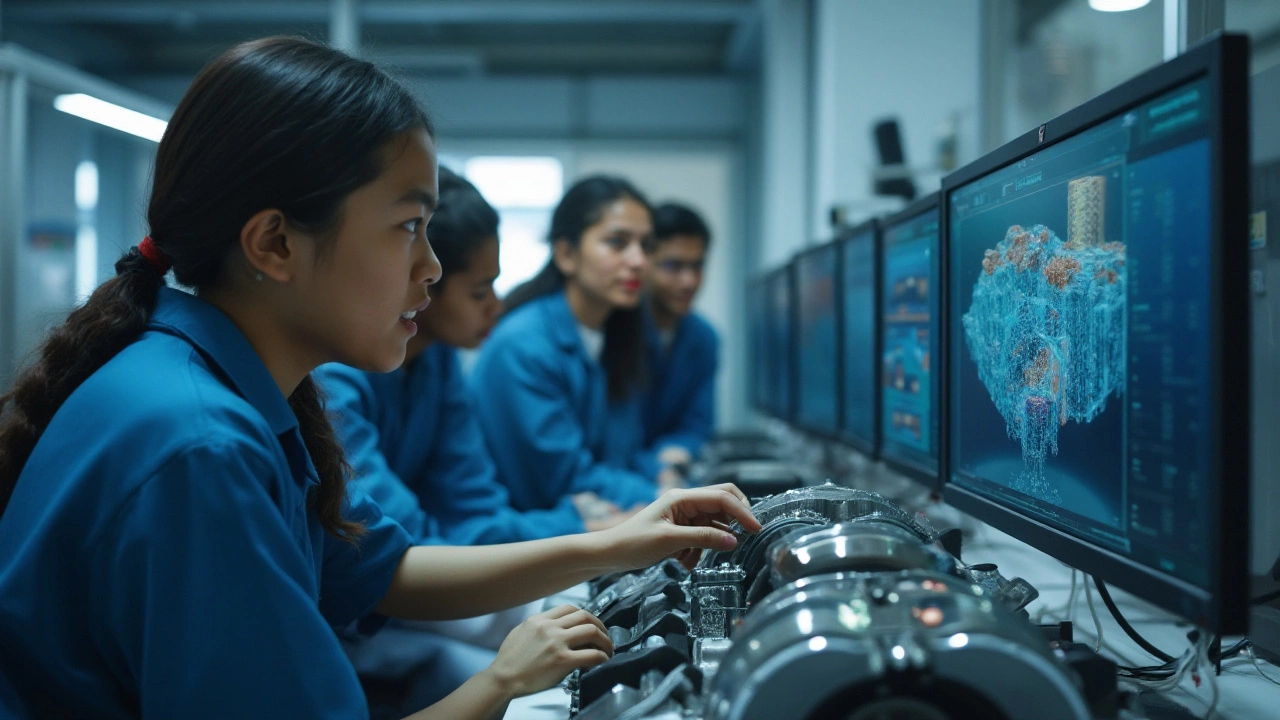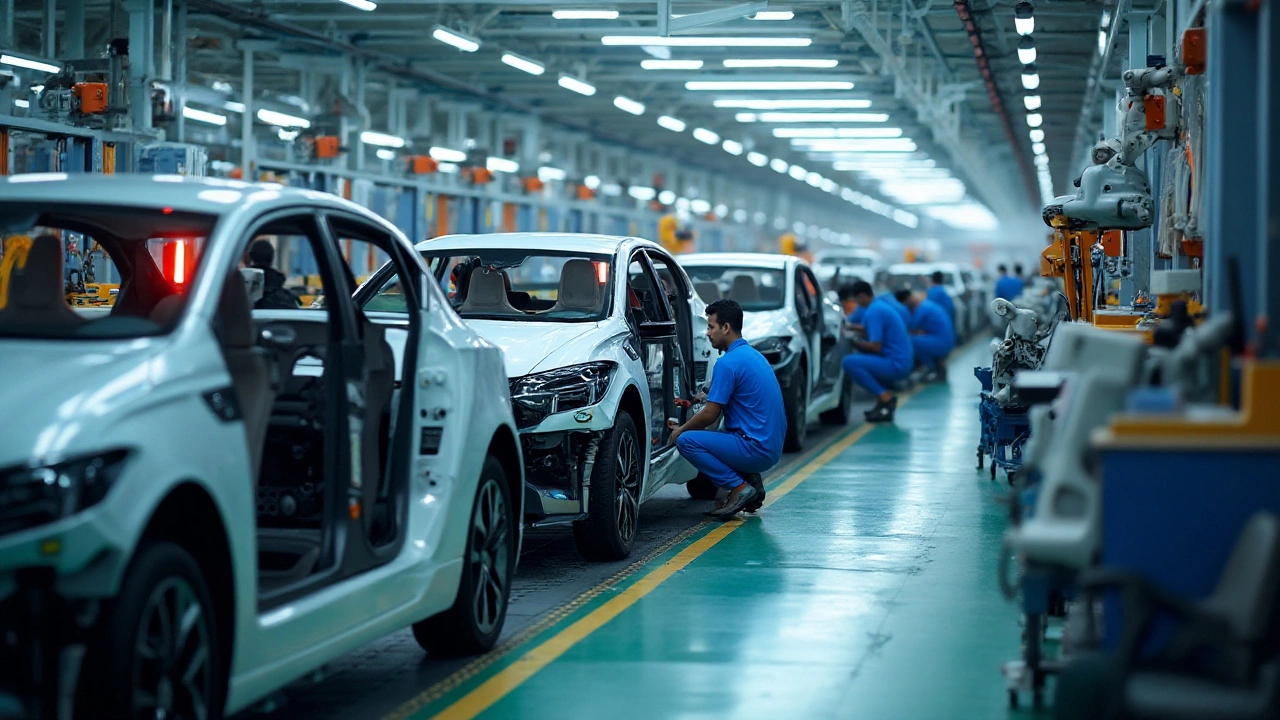Can you imagine the vibrant streets of Dhaka with locally-produced cars weaving through the bustling traffic? As regional economies grow, the potential for Bangladesh to carve out a niche in automobile manufacturing becomes more plausible.
Bangladesh, known for its textiles and agriculture, is now gazing towards the horizon of the automotive industry. Recently, sparks of innovation and ambition have ignited as local entrepreneurs and multinational companies consider setting up manufacturing plants in the country.
In this narrative, we will journey through the untapped potential of Bangladesh's venture into the world of cars. From pioneering companies daring to build the first Bangladeshi car, to the myriad of challenges and opportunities that lie ahead, the path is as fascinating as it is uncertain.
- Emergence of the Automotive Industry in Bangladesh
- Pioneering Car Manufacturers and Models
- Impact on Local Economy and Employment
- Challenges and Future Prospects
Emergence of the Automotive Industry in Bangladesh
Bangladesh may not yet be synonymous with cars, but a quiet revolution whispers through its growing industrial landscape. Despite textile industries dominating its economic identity, Bangladesh is shifting gears towards becoming a notable name in the automotive sector. This ambition is evident in recent government policies and investment decisions that aim to nurture local car production capabilities. The country's government, determined to diminish reliance on imported vehicles, has laid out incentives that bolster the automotive industry's emergence.
Over the past decade, Bangladesh's economic growth has provided a fertile ground for such industrial ambitions. With a rapidly expanding middle class eager for affordable vehicles, local manufacturers find themselves on the cusp of an unprecedented opportunity. Reports suggest that the Bangladeshi market consumes approximately 20,000 automotive units annually, yet only a fraction of these are domestically manufactured. Such numbers spell untapped potential, driving both local entrepreneurs and international investors to the table.
Domestic pioneers have begun to emerge, each with their unique approach to jump-starting this nascent industry. Pragoti Industries, a state-owned enterprise, has been assembling vehicles for international brands for years. As the landscape shifts, Pragoti is poised to transition from assembling foreign brands to nurturing homegrown models. Meanwhile, initiatives like the establishment of the Bangabandhu Hi-Tech City in Kaliakoir demonstrate the scope of ambition, offering a blueprint for innovation hubs catering to the automotive sector.
These efforts are not without validation from notable experts. Quoting a regional industrial analyst, "Bangladesh stands at the precipice of a new industrial era, where its automotive capacity will reflect its economic resilience." Opportunities abound as international companies express interest, intrigued by the prospect of manufacturing at a lower cost due to cheaper labor and government tax benefits. The strategic location of Bangladesh in South Asia further beckons with promises of facilitating export operations to nearby markets.
The road is not without challenges, however. Infrastructure gaps and skill shortages pose real hurdles that must be traversed. Investments in education and training are vital to build a workforce equipped to tackle this industry's demands. Bangladesh’s potential in the automotive sector will rely as much on addressing these infrastructural and educational deficits as on the ambitions that drive it.
As this sector gains momentum, international collaborations and partnerships will play a crucial role. Foreign investments could pave the way for technology transfer and innovation, aiding Bangladesh in navigating initial technological hurdles. Through joint ventures and strategic alliances, the nation hopes to bolster its industrial capabilities, creating a symbiotic relationship that benefits both local and global players.

Pioneering Car Manufacturers and Models
The landscape of car manufacturing is shifting in South Asia, and Bangladesh is emerging as a potential new player. While the country is traditionally associated with its booming textile industry, recent developments indicate a growing interest in establishing a Bangladesh cars industry. One of the most notable names in this ambitious venture is Pragoti Industries Limited, a state-owned enterprise that has made headlines by assembling vehicles from renowned international brands. Although these aren't entirely 'Made in Bangladesh,' the step marks a significant beginning for local craftsmanship and industrial skill enhancing the manufacturing sector.
Pragoti Industries has been in operation for decades, focusing primarily on motorcycle and three-wheeler assembly. However, since collaborating with Mitsubishi Motors, they have successfully assembled the Pajero Sport and Lancer EX models. This collaboration not only brings advanced automotive technology to local soil but also provides much-needed technical training and experience to the Bangladeshi workforce. These initial steps are crucial as the country sets its sights on broader automobile production ambitions.
In recent years, the automotive scene in Bangladesh has witnessed homegrown entrepreneurs aiming to create an indigenous car brand. A notable effort is from the Bangladesh Machine Tools Factory, which has joined hands with the Malaysian corporation, PROTON Holdings, to start manufacturing PROTON cars in Bangladesh. This venture is significant because it showcases a shift from merely assembling cars to actual manufacturing processes in the country.
As Bangladeshi companies gear up to become frontrunners in this domain, these projects could act as a catalyst for severe economic benefits. Increased Dhaka production reduces the dependency on imports, saves foreign exchange, and fosters business ecosystems around automotive manufacturing. If successful, it could lead to an exciting new array of jobs, both direct and indirect, across various skill levels, thus stoking the flames of potential economic transformation.
To achieve these goals, significant investment and innovation are necessary. Fortunately, the government and private sector are united in recognizing the potential rewards. Another interesting development to note is the rise of electric vehicles in the country. Startups and existing manufacturers are exploring the possibilities of contributing to the eco-friendly vehicle segment. This aligns with global trends towards sustainability and positions Bangladesh as a forward-thinking player in the international automotive market.
As the Chairman of the Bangladesh Automobiles Assembly and Manufacturers Association observed, "Our journey in automotive manufacturing is about transforming dreams into reality. By combining local talent with international partnerships, we aim to position Bangladesh as a beacon of innovation in South Asia."
The path to pioneering indigenous automobile production is certainly not without its challenges. However, recent developments suggest an unmistakable momentum. With skilled workforce initiatives and the right strategic partnerships, Bangladesh is moving closer to producing its own car models, potentially escalating its status from an assembler to an Original Equipment Manufacturer (OEM) in the near future.

Impact on Local Economy and Employment
Venturing into the realm of automobile production in Bangladesh holds significant promise for boosting the local economy and opening up expansive job opportunities. The move to establish a local car industry can act as a catalyst for economic growth. Imagine the knock-on effects of setting up manufacturing plants; they can create thousands of direct and indirect jobs. From assembly line workers to skilled engineers, the industry demands a wide range of expertise. Moreover, this shift may encourage a blossoming of related sectors, such as component manufacturing, logistics, and retail services, further cementing Bangladesh's economic potential.
As potential investors consider setting up shop in Bangladesh, they could be drawn to the country's growing infrastructure and the availability of a young labor force eager for new opportunities. With appropriate training programs, the automotive sector could transform a segment of the population into skilled professionals, boosting their incomes and enhancing their quality of life. Additionally, successful car production and sales within the country and possibly exporting represent deeper integration into the global trade network.
According to a report by the World Bank, "The expansion of the automobile sector in emerging economies typically leads to substantial job creation and infrastructure development, positioning the country as a competitive player in the regional market." This insight underlines the transformative potential of the auto industry in regions previously unassociated with such manufacturing prowess.
Another layer to consider is the potential boost to the education sector. Courses focusing on automotive engineering and technology might see a surge in popularity, as students prepare to enter a budding industry. Universities and technical institutions could adapt by expanding their curricula to cover the specific skills required by car manufacturers.
With the establishment of a strong automobile production base, small and medium enterprises could flourish by becoming suppliers for larger companies. This ripple effect can stimulate innovation and development at all levels of the economy, linking Bangladesh’s fortunes more closely to the Bengali auto landscape. Additionally, the revenue generated from this industry could be reinvested into public infrastructure projects, further supporting economic development and enhancing overall living standards for the populace.

Challenges and Future Prospects
Venturing into the automotive industry is no small feat, and for a country like Bangladesh, with its deep-rooted history in textiles and agriculture, diving into car manufacturing presents distinct challenges. First and foremost, there is the issue of infrastructure. Although Bangladesh is making strides with its roads, ports, and utilities, much work remains to be done to support a thriving automobile production sector. Current facilities may not yet be equipped to handle the heavy demands that come with producing automobiles at scale. Transportation networks, in particular, require significant improvements to ensure that the logistics of car manufacturing can proceed without hindrance.
Next up are the technological and skill-based challenges. Car manufacturing is a highly technical discipline that requires skilled workers and a level of technological know-how that is currently underdeveloped in Bangladesh. This gap accentuates the need for training programs and collaborations with countries that have a rich history in car production. It’s worth noting, though, that there is a young and dynamic workforce in Bangladesh eager to learn and adapt to new industries. Initiatives to partner with international engineers and institutions could potentially bridge this skills gap.
Moreover, financial investment is a determining factor in Bangladesh's automotive ambitions. Setting up manufacturing units requires substantial capital investment, which might be a constraint given the existing economic landscape. To attract foreign investments, the government must implement favorable policies and incentives. However, with a strategic approach, automobile production in Bangladesh offers a high return potential, as identified by forward-thinking investors who are beginning to see the value of an emerging market that covers a vast, untapped regional demand.
The future prospects for the Bangladesh automobile production sector look promising if these challenges can be overcome. By leveraging geopolitical relationships, the country stands to gain from trade benefits and expert guidance. Long-term, Bangladesh could establish itself as a hub for exporting cars to neighboring countries lacking indigenous car manufacturing capabilities. A significant portion of the population in this region is entering the middle class, increasing the demand for personal vehicles, which Bangladesh could capitalize on in coming years.
"Our vision is not only to produce cars for Bangladeshis but to share quality Bangladesh-made automobiles with the entire region," stated a Bangladeshi industry leader, reflecting the optimism that surrounds this nascent market.
In conclusion, while challenges are abundant, the fusion of ambition, infrastructure development, investment in skills, and attractive policy measures can position Bangladesh as a new frontier for car manufacturing. It is an intriguing time for the country, as it straddles the line between its rich heritage and a burgeoning future, eager to drive its auto industry into a successful realm.

